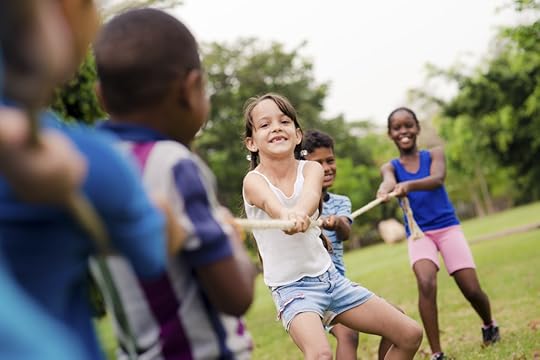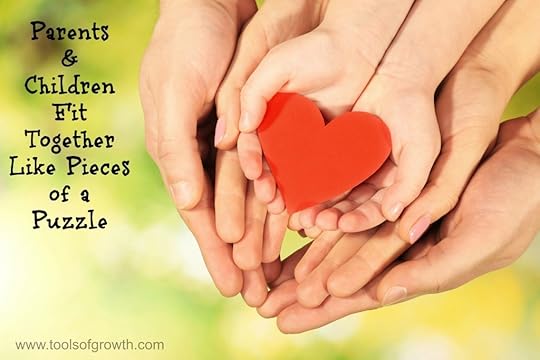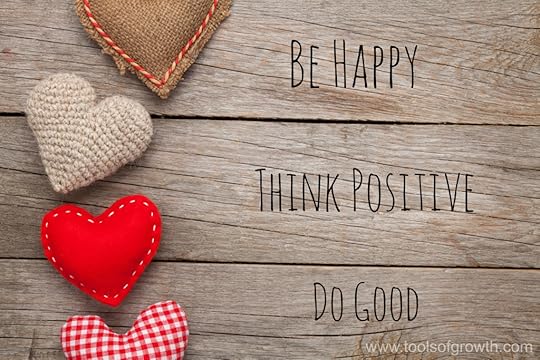Roma Khetarpal's Blog, page 26
April 13, 2015
Summer Camp can shape a child’s personality, don’t you think?
Did you ever go to a class or summer camp that was not just a fun experience but one that truly changed your outlook on life? Did you ever have a travel adventure that still influences the way you see things? For me, that happened at age 8, when I visited an orphanage in India during a summer vacation with my cousins. It was the very first time that I truly understood the effect of empathy. It was the very first time that I felt a heart full of gratitude. It was an experience that made a lasting impression on me and shaped the person I am today.
All across this country, parents and kids are either preparing for spring break or wrapping up that short vacation. From here on out, the end of this school year is on the horizon. It’s time to consider what to do this summer.
Summer camp offers the perfect opportunity for kids to stretch their imaginations in a way that differs from their in-class activities. They spend the school year focused on structure and learning—reading, writing, and calculating. Summer is the time to help them experience something different, something progressive, something that will open their minds to new possibilities.
How about activities or camps where they get the chance to deepen their understanding of themselves and to grow from within? Where they explore their inner world and their outer world simultaneously, expanding their horizons and connecting not just with their community but also with the world and its issues?
One such program is the World Peace Game Camp, whose founder, John Hunter, is an award-winning teacher and educational consultant who has dedicated his life to helping children realize their full potential.
The World Peace Game is a four-tiered structure that puts the problems of the world within reach of the students. Students are organized into country teams with political roles like prime ministers, secretaries of defense, and cabinet staff. Others play the secretary of the United Nations, president of the World Bank, arms dealers, “the weather goddess,” and a saboteur. This game exposes children to systems thinking, critical and creative problem-solving, leadership responsibilities, decision-making, negotiation, and much more.
This is an experience that allows children to contribute to a better future, not just as a community or a state or a nation but as one world moving toward peace.
Yes, it is a camp that requires travel and that needs some planning. But is that not what the summer should be all about? Giving children an experience to travel, to grow, to redefine themselves, and to experience new things that they can share with their classmates when they return to school in the fall.
The post Summer Camp can shape a child’s personality, don’t you think? appeared first on Tools of Growth.
April 6, 2015
Conflicting with your kids over summer academics? Often, we do know best.
Last year I purchased the coolest looking toaster I’d ever seen—the Magimix. Loaded with super-fancy features and frills, my toaster toasts both bread and bagels to perfection.
Last night, Navin, my electronically savvy 24–year-old son—needing a carb boost before his workout—decided to slip in a second piece of bread while the first one was toasting. Much to his dismay, it ended in the wrong slot, right on top of the heating coil. Within seconds, we had a tiny, smelly smoke cloud above our toaster, as the slice mated with the hot coil.
Navin quickly disconnected the cord and moved the toaster to an open space. As the toaster cooled off a bit, I flipped it upside down in the hope of getting the burnt toast off the coil and out of the toaster. No luck there. The bread would not budge.
“There’s got to be another way to do this, Mom,” said Navin.
“I know there is!” I responded. “This front glass panel actually flips open. I just can’t figure out how. I’ve only used that feature once before.”
An aha moment! I quickly reached into my drawer of operation manuals and began pulling them out, fishing for the one that belonged to our Magimix.
“Did you find it?” asked Navin, who was right behind me.
“Yup,” I answered, as I handed it to him.
In the few seconds it took me to put the other owners’ manuals back in the drawer and close it, my son had already opened the glass panel!
“How’d you do that so fast?” I asked him. “There aren’t even any pictures in this manual.”
“You should know, Mom. You’re the one who forced me to take those awful speed-reading classes two summers in a row!”
“Yes, I did, didn’t I!” I replied with a big wink.
“You did, and I’m so grateful for it today. I know I gave you a really hard time both summers, but I want you know that it was best gift you gave me. Without it, I don’t know how I would have gotten through school or college. And just so you know, even at work now, I can go through product-training material and customer notes super fast. My colleagues are all shocked at how speedy I am.”
Years ago, when Navin got to middle school, it had become more and more apparent to me that he disliked reading. His grades in subjects that required a lot of reading started to drop, and he almost never finished his reading assignments. I started to get concerned about how he would get through high school and college, if he hated to read. When I found these classes in our local college’s summer brochure, I knew I had to try to help him help himself, and I made an executive decision to enroll him.
From a parental perspective, it was super challenging! I remember those grueling days when my son pushed back hard about those “stupid” speed-reading classes that I made mandatory. I know he hated sitting in a classroom over summer break, four hours a day, five days a week, for six weeks. I knew how hard this was for my visual, right-brain learner. My response to his attitude was, “I know this is hard, but I promise it will help you through your academic years. I promise you it will be worth it.”
I rewarded him for his efforts every day. I got creative with fun treats and play dates after class. I even bribed my daughter to join the classes with him. I promised her a shopping spree to Limited Too—then the hottest place to shop for teenage girls. (And actually, Navin saw the benefits of the classes as soon as school started. So the second summer was a lot easier.)
Yes, I broke all the psychologist-recommended guidelines of parenting two summers in a row. I let my son feel like he was doing me a favor, more often than not. I tolerated his silly tantrums. I bit my tongue every time I got impatient and wanted to fire back. The only thing I did not tolerate was disrespect. Navin crossed the line just once—with language. Other than that, I vowed to allow him to complain and vent as much as he needed to. When I started to lose it, I’d play my inner mantra: “He’s only complaining. Let him.”
And look at him now! Still reaping the benefits while being grateful! Well worth the effort, don’t you think?
So all you parents out there who are getting ready to enroll your children in summer camps and classes that they’re not looking forward to, trust your instinct. Stay with it, and be patient. As long you know you’re doing it for the greater good, it will be well worth it. If your kids commit to the challenge, even unwillingly, you can commit to letting them complain and vent. And for those moments when your patience is tested, you can turn to my life-saving, patience-inducing, favorite parenting phrase, “When you are right, practice being kind, first!”
The post Conflicting with your kids over summer academics? Often, we do know best. appeared first on Tools of Growth.
March 30, 2015
Teaching Moments: Tunnel Vision vs Peripheral Vision
Many parents have survived that dreaded call from the school alerting them to something their child did that they wouldn’t approve of. Whether it was stealing another student’s pencil, talking too much in class, or picking a fight with another child on the playground, there are moments where you just want to throw up your hands and wonder where you went wrong. While these might seem minor, there are some parents who have also received the “cheating” call.
When you have found out your child cheated on a test, it can be like your world suddenly stands still. Your feelings will most likely run the gamut from embarrassment to complete anger. Of course you didn’t raise your child to do something like this.
I was so embarrassed when the principal told me what happened. I literally wanted to bury my head in the sand and stay there for a few days.
How could he even think of doing such a thing? What the h&*% was he thinking.
Often, the incident becomes less about them and their feelings and more about you and yours. Take a step back, breathe, and be silent. Think about how you would answer these questions.
What can you do about this incident now that it has already passed?
Did your child apologize?
Did the school reprimand him/her for it?
Are you embarrassed about this? Is your child embarrassed?
Do you think he/she will do it again? Was a lesson learned?
So how can you get past this and move on?
Children usually cheat because they have a fear of not doing well, a fear that they will disappoint their parents, their teachers, themselves. As their parent, it is up to you to figure out whether they just didn’t study enough or if they honestly don’t understand the material. Some kids struggle with the pressure of taking tests. When our children are afraid, they get trapped in a tunnel of fear. First the fear of not doing well, then the fear of getting caught, then the fear of facing all the adults, then the fear of the wrath of anger he would face from the parents, then the fear of facing his peers and teacher in going back to school. A dark tunnel of fear!
When situations as such occur with our kids—which they will—it is important that parents do not enter this tunnel of fear with their own agenda creating more chaos! When our children are sitting in this dark place, with tunnel-vision, unable to see outside of their own remorse and consequences, it is important for us to remember to be the one with the peripheral-vision. Keep your eye on the bigger picture. Having the presence of mind and courage to do this is what ushers in light into the darkness of fear.
Our job, when kids make mistakes, is first and foremost, to address and reiterate the lesson learned. If we enter this space of negativity with them, how does that benefit anyone? More so, when parents develop tunnel-vision habits of creating their own stories of fear around their children’s, it breaks down communication, hinders the relationship and pinches trust in the parent-child relationship. Long term, it teaches children to handle their own life-issues in the same manner. What a waste of valuable teaching moments!
Be the champion of your children’s trips and falls by keeping your peripheral vision active and handholding and loving them out of their dark tunnel vision. This is the only way to teach them to learn from life’s challenges, not through a camera lens, but through eyes wide open.
The post Teaching Moments: Tunnel Vision vs Peripheral Vision appeared first on Tools of Growth.
March 23, 2015
Parenting: Enjoy the Ride
Kids will be kids.
They are going to fight and push the limits. That’s what they are supposed to do. It’s how they learn and grow. Didn’t we do that to our parents? Didn’t we mentally and emotionally ambush them sometimes? That’s life. We go through the emotion commotion because we have expectations. We expect our kids to behave well all the time. But that is our shortcoming, not theirs. For their part, our kids expect only love and happiness from us. If we also put love and happiness first, we will be better equipped to handle the challenges they bring.
Whatever our expectations, we should always recognize that our kids are “perfect” just the way they are. They are perfect because they are ours. If they were not perfect for us, then they wouldn’t be in our lives. Call it fate, God, destiny, or whatever you like. Look around and you will notice that parents and children fit together like pieces of a puzzle. There is a place where they connect. Whether you have one child or ten, each will fit you perfectly.
When our kids make mistakes we need to remind ourselves that this, too, is part of the enjoyable ride. They will learn from them, as did we. That will help us bounce back and return to our positive outlook. Clouds of unhappiness come in to teach us something, and when we have mastered their lesson, they move on, revealing clear blue skies once again. The sooner we start to understand and accept this, the sooner we will start to enjoy this lifetime ride.
As my kids often remind me, “YOLO, Mom.” You only live once! We will only have these children once! Let’s enjoy the ride and our kids as best as we can. If we strive to make this ride enjoyable, it will naturally be a memorable journey for us.
Read more in The “Perfect” Parent.
The post Parenting: Enjoy the Ride appeared first on Tools of Growth.
March 16, 2015
Saying “Kindly,” Kindly
At a recent yoga class, my teacher, Wendy Hassenpflug from Vayu Yoga, mentioned Dr. Albert Mehrabian’s “7%-38%-55% Rule,” which states that when it comes to communicating our feelings, words account for 7 percent of what is received, our tone of voice delivers 38 percent, and our non-verbal expressions (body language and facial expressions) the other 55 percent.
In other words, for effective and meaningful communication about emotions, our words, tone of voice, and body language and facial expressions need to be in sync—they need to support each other.
In an instant, my mind went back 10 years to a heated discussion I had with Nitasha, my then-teenage daughter, and I burst out laughing! Finally that exchange all made sense. Here’s the story:
One day I had gone into Nitasha’s room to get something, and I walked into a bit of a mess. I take that back. Her room was actually a big mess! Later that day, as Nitasha and I were driving home from school, she started to share with me her heavy homework load for the evening. As she was telling me all the things she had to do, I interrupted her and in a firm tone of voice said, “Nitasha, I walked into your room and what a mess I found. I get that you have a big workload today, but kindly arrange your room before you do anything else!”
Her response took me by surprise!
“Mom,” she said, “it really annoys me when you talk sarcastically like that!”
“Sarcastically?” I barked. “What is so sarcastic about reminding you to arrange your room?”
She shot back, “Now if you used the word ‘reminding,’ Mom, we would not be having this conversation!”
Needless to say, I was stumped! I had no idea where she was coming from!
“I’m so confused, Nitasha! What part of what I said was sarcastic, and what word should I have replaced with “reminding?” I asked her.
“See, Mom, I don’t think you realize that whenever you use the word ‘kindly’—and you use that word a lot—you use it as a command without any kindness at all. Your tone of voice is so demeaning that it makes me not want to do what you’re asking me to do! And you even frown when you say it. I wish I could take a picture of your scrunched forehead. All I’m asking is, if you’re going to use the word ‘kindly,’ then you should use it kindly—like, with kindness. Does that make sense?” she fired back, all in one breath.
It took me a minute, but I sort of saw her point. I took a quick inventory of my use of that word: “Kindly pick up after yourself.”
“Kindly lower that tone of voice. “Kindly show some respect!” And yes, I must admit, she was right. I really didn’t use that word very kindly! I realized that I had a certain commanding, perhaps even condescending, tone of voice that was a habitual delivery of that word—over and above the not-so-kind facial expressions. From then on, every time I used the word, ‘kindly,’ I watched my tone and tried to avoid scrunching my forehead.
And here I was, a decade later, reading about Dr. Mehrabian’s research, and it all came back to me, this time making perfect sense! Nitasha clearly had been affected by my words only by a minimal amount. My tone of voice and facial expressions did the rest of the talking!
How did I correct this habit? I began by looking up the definition of the word ‘kind’: loving, affectionate. I then made it a point every time I used the word to use it lovingly and affectionately—true to its essence.
How can we teach our children the true meaning of essential character-building words if we are unable to use them effectively ourselves? As I became more mindful of the words I used and the tone of voice and expressions behind them, lo, and behold! I found that I was using another oh, so important character-building word, completely out of its true context—“please.”
Many a time, I caught myself saying this word with a commanding tone of voice and a hard face:
Please learn to pick up after yourself!
Please finish your homework, now!
Please turn the lights off when you leave the room!
If we commit to using these words of grace gracefully, only then will our children learn to use them as they are meant to be used—with compassion and empathy.
Are there any such ineffective words that you use that irk your child? Share it with us (in the comment section below) so we can all learn together and help each other build our children’s character and communicate effectively.
The post Saying “Kindly,” Kindly appeared first on Tools of Growth.
March 9, 2015
Raising Parents
Last week, I was thrilled to see my son at a discussion and signing for my book, The “Perfect” Parent, in Valencia. At the end of the event, I spotted him chatting with a huddle of moms. As soon as I finished my last signature, I walked up to join in the conversation.
“The workshop today has really touched me and inspired me to be a more mindful parent,” one woman sweetly complimented me. She then turned to my son and added, “Your mom is amazing!” At this point, my witty boy put his arm around my shoulder, gave me a side squeeze, and said, “Yes, she is! We have raised her well!” A burst of laughter followed. “Yes, you have. You definitely have,” I replied.
Driving home, I couldn’t help but reflect on the wisdom of his words. Yes, my children have raised me well. It is because of them that I am a better person. They have truly awakened from deep within me a profound potential that I didn’t know existed. They have raised my threshold not just to give, care, and share but also to be open-hearted. Their ability to accept and respect individual personalities and generational differences has raised my ability to be more open-minded. Through the challenges that we have faced together, they have raised my level of understanding of them and of myself. Their simple “whys” and “why-nots” have raised the bar of my patience, creativity, and capacity to think and love.
Yes, my loves, you have raised me very, very well…better than I could have done. It is through you that I am aware of my best self. I thank you for this gift of love and the irreplaceable life experiences that have defined who I am today. I love you both to Mars and back.
The post Raising Parents appeared first on Tools of Growth.
March 2, 2015
Parenting: One Size Does NOT Fit All
When our first child is born we tend to look lovingly into their tiny face and analyze every feature. Do they have their mother’s or father’s nose? Do they have the same lips or eyes or ears as their parents? We focus on the physical, trying to connect to them on a purely superficial level. We want them to look like us, we want them to be us. We have ideas on what parenting our kids will be like.
The reality is, of course, that as our children grow and learn and mature, they might resemble us in looks, but they rarely resemble us on a more visceral level. While we expect them to act like we do, it’s the realization that they are different from us that sometimes stumps us when it comes to parenting.
How could my child not like what I like?
How could they not do well in school when I was a straight A student?
I used to have tons of friends, why is my child a loner?
Our children are from us, but they aren’t us. And they also aren’t each other. Parenting them the same would be like someone telling you that you have to like eating mushrooms or reading mysteries or hiking. One size does NOT fit all when it comes to parenting. When we understand what makes them tick, we can adjust our parenting to help guide them along their own personal path.
From The “Perfect” Parent:
Within the heart of our mind and the mind of our heart, we should accept our children just as they are and respect their individual personalities, honoring them for their ability to complement us and one another. Herman Hesse captured this intention in his story Narcissus and Goldmund:
We are sun and moon, dear friend; we are sea and land. It is not our purpose to become each other; it is to recognize each other, to learn to see the other and honor him for what he is: each the other’s opposite and complement.
Life with all of us the same would be rather boring and uneventful. Our differences should be celebrated and nurtured, even when our children sometimes make choices that don’t fit into the image we set for them. Maybe it’s time we start seeing them for what they are: fabulous individuals who, with our love and guidance, will follow their own path in life to become the adult they were meant to be.
The post Parenting: One Size Does NOT Fit All appeared first on Tools of Growth.
February 23, 2015
Raising Kids: Dedication and Devotion?
We get no awards for parenthood, even when we do it well. It’s not something we get paid for. It is a voluntary position, and volunteering for a lifetime of anything deserves a standing ovation. But to volunteer for a lifetime of responsibility for raising another human being… Now that is worth honoring again and again and again. The only one who understands the depth of that kind of dedication is a parent – you.
You are dedicated to guiding your children and shaping them to be responsible adults as best as you can. But remember, while you are helping them grow their own wings, you, too, are growing as a person and a parent every day. You are devoted to this cause because you love your children.
Vedanta, the philosophical potion of the Hindu scriptures, says that that love and devotion are the same in their nature but differ only in direction. In other words, I can say I love my kids, but I am devoted to parenting them. I can love them just the way I am, but to parent them means that I have to access my inner self, my higher self. I have to be aware. I have to be awake. I have to be willing to grow with them and for them in order to keep up with them.
I have to be truly present and willing to consciously practice that love with patience. I will be challenged, tested, and tried, I know – probably more times than I ever imagined. And yet I will rise above the challenges and do what is best for my child.
I also know that things will not always go my way. I acknowledge that what is best for my child might not be the best for me; it might not be the way that I wanted or the way that I had envisioned. And yet, if and when needed, I will go beyond my personal likes and dislikes to make things happen for my child. This has to be devotion. As often as we can, we want to do our best for our children. As parents, we are all devoted to this purpose, and such devotion is worthy not just of respect but even more so of honor.
Read more in The “Perfect” Parent.
The post Raising Kids: Dedication and Devotion? appeared first on Tools of Growth.
Dedication: An Excerpt on Honorable Parenting from The “Perfect” Parent
We get no awards for parenthood, even when we do it well. It’s not something we get paid for. It is a voluntary position, and volunteering for a lifetime of anything deserves a standing ovation. But to volunteer for a lifetime of responsibility for raising another human being… Now that is worth honoring again and again and again. The only one who understands the depth of that kind of dedication is a parent – you.
You are dedicated to guiding your children and shaping them to be responsible adults as best as you can. But remember, while you are helping them grow their own wings, you, too, are growing as a person and a parent every day. You are devoted to this cause because you love your children.
Vedanta, the philosophical potion of the Hindu scriptures, says that that love and devotion are the same in their nature but differ only in direction. In other words, I can say I love my kids, but I am devoted to parenting them. I can love them just the way I am, but to parent them means that I have to access my inner self, my higher self. I have to be aware. I have to be awake. I have to be willing to grow with them and for them in order to keep up with them.
I have to be truly present and willing to consciously practice that love with patience. I will be challenged, tested, and tried, I know – probably more times than I ever imagined. And yet I will rise above the challenges and do what is best for my child.
I also know that things will not always go my way. I acknowledge that what is best for my child might not be the best for me; it might not be the way that I wanted or the way that I had envisioned. And yet, if and when needed, I will go beyond my personal likes and dislikes to make things happen for my child. This has to be devotion. As often as we can, we want to do our best for our children. As parents, we are all devoted to this purpose, and such devotion is worthy not just of respect but even more so of honor.
Read more in The “Perfect” Parent.
The post Dedication: An Excerpt on Honorable Parenting from The “Perfect” Parent appeared first on Tools of Growth.
February 16, 2015
How Can We Teach Our Kids to Be Themselves?
“You remind me of my sister.”
“He looks just like his dad.”
“She has her mother’s attitude.”
“Stop it—I don’t need another mother-in-law”
“I can’t stand my boss—he’s such a Napoleon.”
We spend a good part of our life fitting people into our world. The good, the bad and the pretty—somehow, we have a familiar image for it. These kinds of comparisons are how we bring new people and experiences into our world, making them feel closer and more familiar to us.
I was at the hospital the other day congratulating friends who had their first baby. Amid the love, I couldn’t help but notice the dialogue:
“Awwwww, his eyes are just like my father’s.”
“OMG, he cries just like his sister did when she was a baby.”
“He’s stubborn. He must get it from his grandpa.”
The comparisons begin at birth, but they don’t stop there. Our kids grow up with:
“You could learn a thing or two from your best friend, Charlie. Look how respectful he is.”
“I heard Jason made his mom breakfast in bed for her birthday…hint, hint.”
“How come the rest of the class can ‘get’ math, and you can’t?”
We want our children to be confident, resilient, and self-reliant so that they can be their best selves in this “dog-eat-dog” world. But what do we do from the get-go? We box them into a confined space with Charlie and Jason and the rest of the class and their siblings and parents and so on. We want them to find themselves, and yet with these comparisons, we restrict their growth, self-discovery, and self-understanding, leaving them weighed down with our expectations of whom they should be like and whom they should emulate.
Why can’t we dare to stretch the limit, just a little bit, and remove all the boundaries by saying:
“Be who you are.”
“Be proud of your unique self.”
“Appreciate your strengths—that’s where you can draw the courage to strengthen your weaknesses.”
“But I say that to my son all the time,” said a mom in one of my parenting classes. “He’s so weak, though, he still gets sucked in by peer pressure.”
If that’s the case, then we have to update our dialogue. Why not try:
“I love who you are, and you should as well.”
“I am proud of your unique style, and you should be, too.”
“I appreciate your strengths—and let’s draw from them the courage to strengthen the weaknesses that I know you’ll grow from.”
Yes, it’s a few more words. Yes, it might need a little practice. But it’s definitely a lot more aligned with what we want for our children and what our children want for themselves—to be happy, think positive, and do good. The icing on the cake? The trust and relationship that you build with your kids when you accept them for who they are. They’ll come to know that you truly are the biggest fan of their uniqueness!
Let’s set that intention for the New Year!
Wishing all of you an abundant and mindful 2015! Thanks for your support, and please know that we are here to support you in raising your kids to be happy, think positive, and do good!
In Joy!
The post How Can We Teach Our Kids to Be Themselves? appeared first on Tools of Growth.












